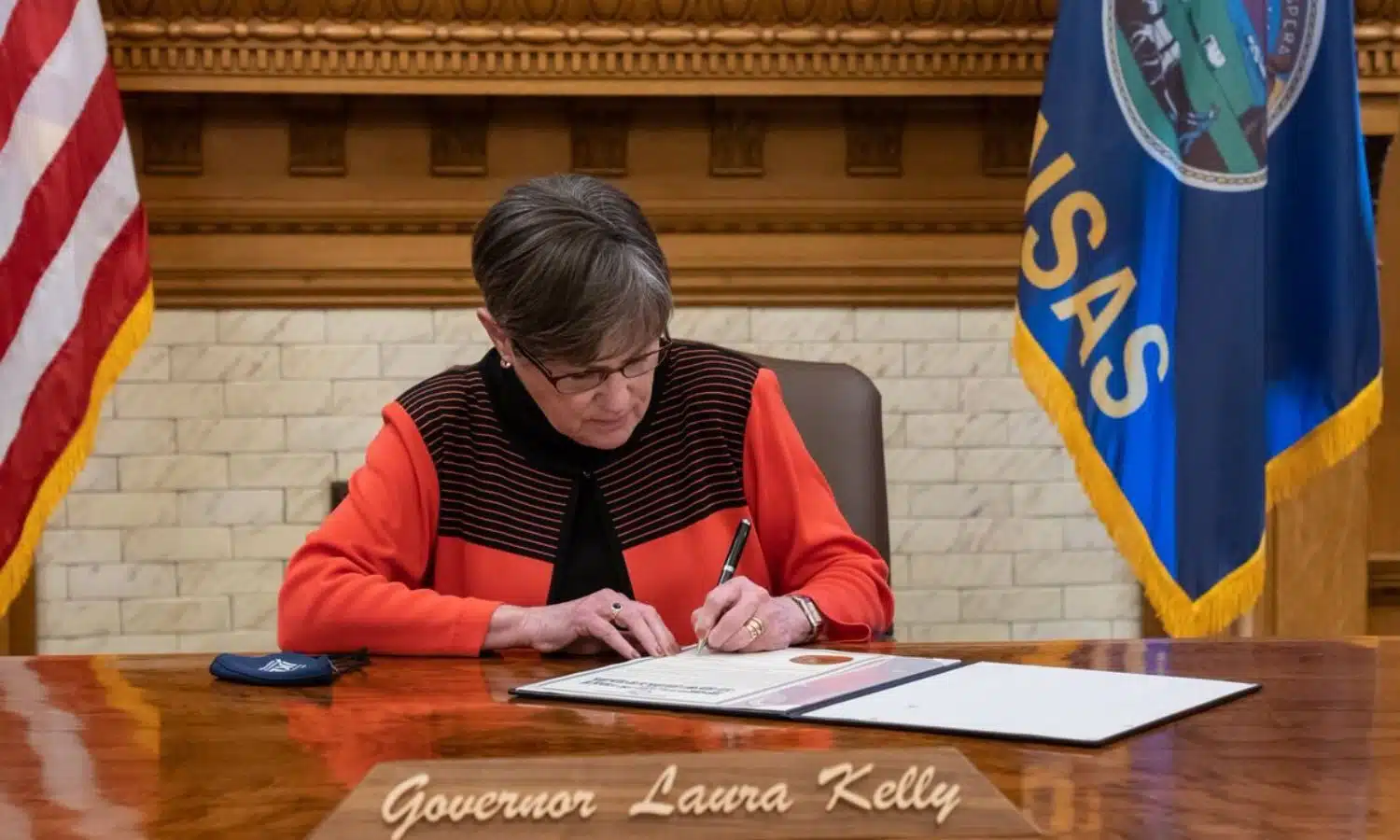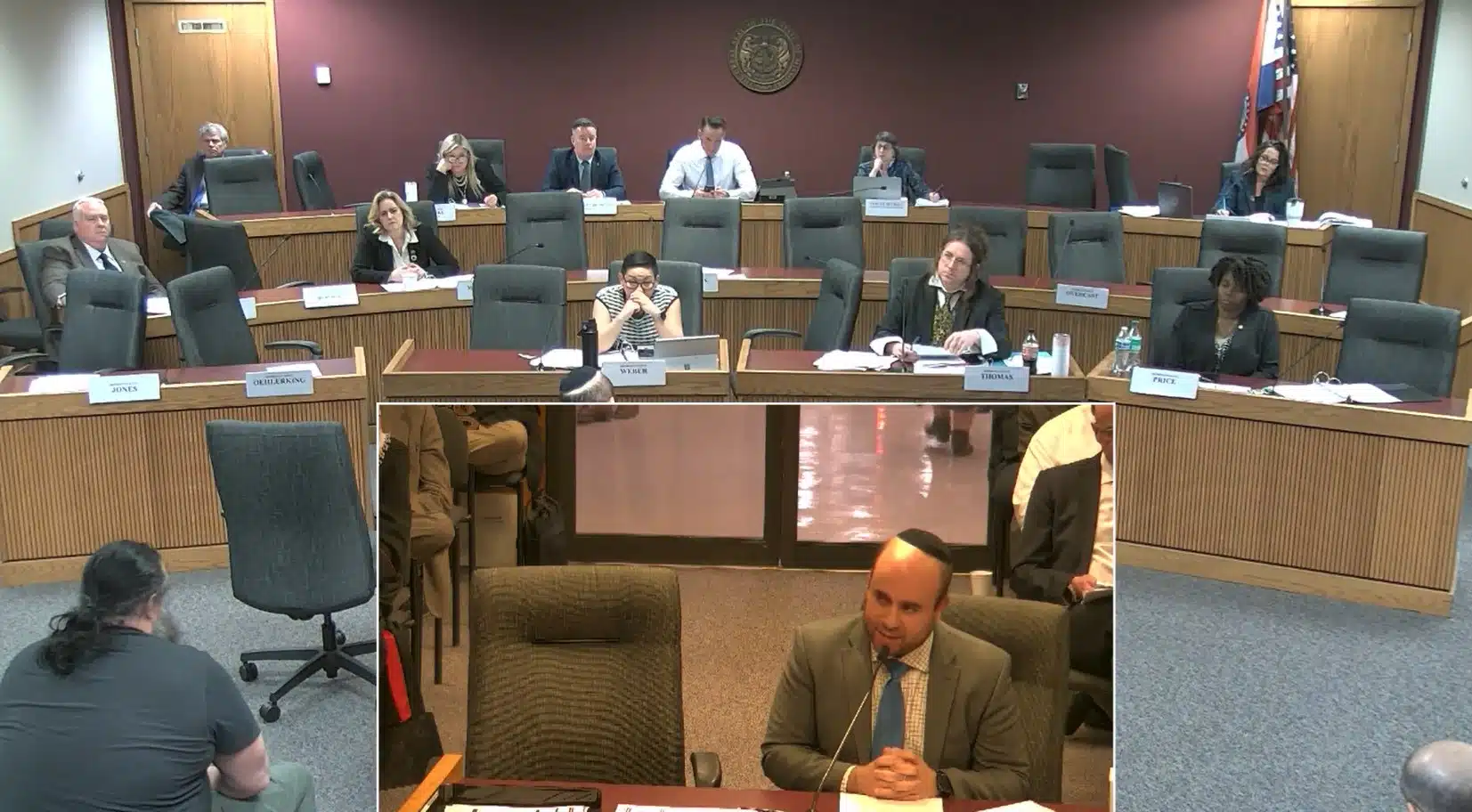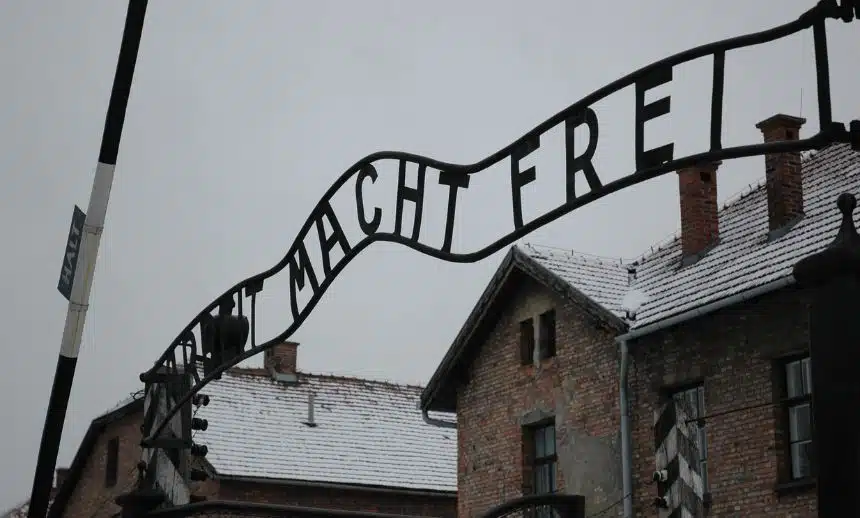|
Getting your Trinity Audio player ready...
|
Kansas Governor Laura Kelly signed legislation on Wednesday reinforcing her state’s adoption of the International Holocaust Remembrance Alliance (IHRA) Working Definition of Antisemitism.
The bill — SB 44, with its full text available HERE — had received bipartisan backing in the Kansas State Legislature, and was approved last month by 39-1 and 102-21 margins in the Kansas Senate and House of Representatives, respectively.
“It is hereby declared that antisemitism and antisemitic acts are against the public policy of this state, including, but not limited to, the purposes of public educational institutions and law enforcement agencies in this state,” the text says.
The new law marks the first codification of the IHRA antisemitism definition in Kansas statute. It was previously adopted by the Kansas State Legislature via a resolution in 2022.
“‘Antisemitism’ or ‘antisemitic’ means the same as defined by the International Holocaust Remembrance Alliance’s Working Definition of Antisemitism, including the contemporary examples, as in effect on May 26, 2016,” the law states.
A total of 37 U.S. states have adopted the definition, according to a database compiled by the Antisemitism Research Center (ARC) by CAM.
Under the Kansas law, the words “antisemitism” or “antisemitic” include:
— Incorporating or allowing funding of antisemitic curriculum or activities in any domestic or study abroad programs or classes.
Kansas House Committee on Education Chair Susan Estes said during the House debate on the bill, “We would like to send a message that we welcome students of all religions to our campuses. This is very important because of what we are seeing on our campuses and we need to take this action immediately.”
The bill was supported by the Combat Antisemitism Movement (CAM), and CAM Founder Adam Beren and Director of State Engagement David Soffer testified on behalf of an earlier version before the Kansas House Committee on Education on Feb. 11.
In his remarks, Beren said the legislation would “demonstrate that Kansas legislators are taking a proactive measure” to fight antisemitism.
Soffer stated, “The Jewish community seeks the same thing every other minority and historically discriminated group seek — the ability to live in peace while being able to practice our religion and culture.”
CAM is leading an organized effort to engage and educate state legislators across the United States on antisemitism-related issues and potential policy remedies, such as the law in Kansas.












